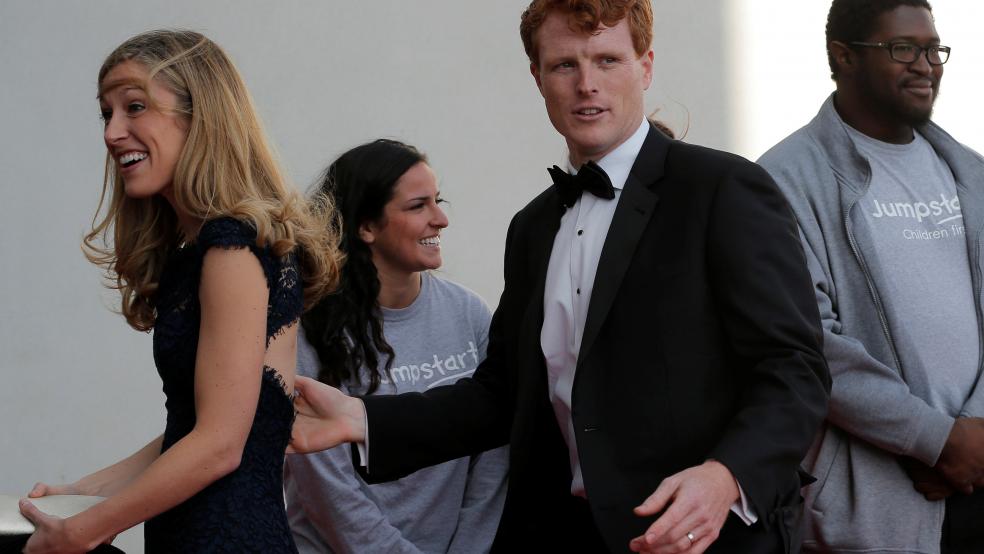So much for the Syrian peace process. With the opening of talks in Geneva last Monday, their collapse two days later, and little hope their resumption February 25th will bear much more fruit, the four-year war in Syria takes a new turn.
New reality No 1: The global community is not equipped—not yet, anyway—with the institutions and mechanisms needed to address 21st century conflicts. Astonishing as it is to say, we don’t know what to do as a nation of 23 million turns into a killing field. We need the kind of large minds our political systems no longer produce.
Related: Has Putin Turned the Tide in Syria?
New reality No. 2: The Obama administration has painted itself into a tight little corner on this one and left itself few paths, if any, out of it. Of all the mistakes Obama and his policy people have made on the foreign side, this one will go down as one of the worst.
Washington needed the talks to yield some modest benefit almost as much as suffering Syrians. Geneva was the proving ground for its contention—or pretense—that there are “Syrian moderates” worthy of backing in their fight against ISIS, or the Bashar al-Assad government in Damascus, or both.
There are plenty of democratically minded Syrian citizens, of course, but those carrying guns, including al-Nusra, the al-Qaeda affiliate, don’t fit the definition. As one non-Islamist activist told The New York Times’ Anne Barnard while walking along Lake Geneva after the talks collapsed, “We can’t deny that Nusra is among us. It would be like saying this lake is made of milk.”
A power vacuum was evident even before the Geneva conference convened, and new facts on the ground have filled it fast.
First, the Syrian Arab Army, with Russian air support, is now winning the war. As of last week the S.A.A. was reported to be within four or five kilometers of Aleppo, Syria’s largest city. There’s no more pretending on this point.
Related: Clinton and Sanders Lock Horns Over U.S. Syria Policy
Second, the Saudis just proposed sending troops—probably special operations units—into the war. And on Sunday, the United Arab Emirates asserted that it’s ready to follow suit.
This idea is rampant with complications. So is the increasing military involvement of the Turks, who are Washington’s other regional ally in the coalition against… against who knows whom? It’s either ISIS, as declared, or Damascus—as is cynically evident on the ground.
All in, it starts to look like truth time for the Obama administration. Its intentions in Syria—defeat the Islamic State or oust Assad—have been a blur for nearly two years, and this trick’s now part of the problem, not the solution.
The vexing dilemma for Obama and Secretary of State Kerry, which they created, is what happens when they clarify the strategic goals. There seems little avoiding this in the post-Geneva context, but many contradictions are likely to be exposed.
Related: U.S.-Led Coalition Aims to Recapture ISIS 'Caliphate' In Iraq, Syria
First, it’s fine to say the S.A.A. and the Russians are to blame for the failure in Geneva, as Ban Ki-moon the U.N.’s secretary-general, asserted over the weekend. The second half of the point is that the Saudi-backed opposition left town because it’s losing the war—the war against Assad, of course, not ISIS.
As the Syrians and Russians make plain, neither distinguishes one Islamist militia from another. Why are some armed Sunni radicals waging a sectarian war against a Shiite regime different from others? And where are the moderate democrats carrying TOW anti-tank missiles?
The “freedom fighter” narrative is collapsing as we speak. Now what?
Second, the nature of the coalition’s regional leaders can’t any longer be swept under the rug. Saudi Arabia’s participation in the bombing campaign against ISIS was never more than a gesture; Riyadh and the Emirates are suddenly motivated because their war is at bottom sectarian and their guys are losing it.
What’s the Obama administration going to do in response to these two surprise offers to commit ground troops? It’ll be interesting to see. As to the Turks, they’re fully out of the closet: The Erdoğan government’s objectives are Sunni nationalist: a coup in Damascus and the destruction of the Kurdish autonomy movement.
Related: Syria Says Any Foreign Aggressors Will Go Home "In Coffins"
It’s hard to see, finally, how Washington can continue to escape from the logic of a tactical “united front” with the Russians, but to enter into one is to abandon the strategic-rivalry aspect of the Syrian crisis.
On the diplomatic plane, Kerry has used his comfortable relationship with Sergei Lavrov, Russia’s foreign minister, to identify common ground. They appear to be eye to eye now in recognizing that the world’s enemy is ISIS and ousting Assad would simply produce another Libya.
But the administration’s divided on the Syrian question. He does one thing and the people who hand out hardware do another.
Post-Geneva, it’s time to clean up the act. If talks reconvene later this month—an “if” at this point—the menu should be prix fixe: You’re either unambiguously dedicated to destroying the Islamic State—which will require much of the opposition to realign—or you’re disinvited to the party and the bouncers will see you to the door.






